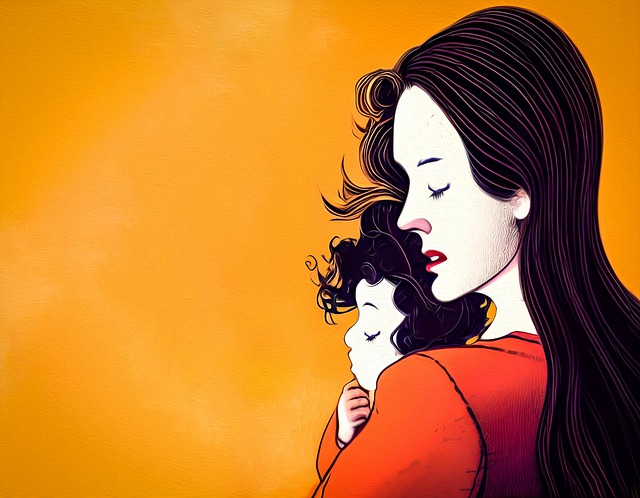Motherhood is a unique feeling in a woman’s life. And the birth of a healthy baby brings a multifaceted occasion of joy to the family. Along with joy, the maternity period is very important in a woman’s life. Along with various physical reactions, women have to deal with various mental problems at this time. However, these problems do not disappear immediately after childbirth. There are some mental problems that are prominent in the postpartum period of women. But due to lack of awareness they remain neglected. So, every woman has to what Postpartum Depression is.
Table of contents
What is postpartum depression?
Postpartum depression (also called PPD) is a medical condition that many women get after having a baby. It’s strong feelings of sadness, anxiety and tiredness that last for a long time after giving birth. These feelings can make it hard for you to take care of yourself and your baby. Postpartum depression can happen any time after childbirth. It often starts within 1 to 3 weeks of having a baby.
What are the causes of postpartum?
After childbirth, a dramatic drop in the hormones estrogen and progesterone in your body may contribute to postpartum depression. Other hormones produced by your thyroid gland also may drop sharply — which can leave you feeling tired, sluggish and depressed. Emotional issues.
Many new mothers suffer from postpartum depression, which can be devastating for both mother and baby.
Baby Blue vs Postpartum depression
Many women experience some change in their behavior after giving birth. At this time, they may suffer from loneliness, excessive emotionality, excessive anger, sadness or depression. This is a normal process. In 80% of women, such symptoms appear within seven days after the birth of the baby. In medical terms this is called “baby blue”. Typically, the symptoms of baby blues can last up to two weeks. If it lasts longer than that, it can be postpartum depression. In this case, the importance of the doctor is inevitable. Along with this, the support of family members is required.
According to doctors, this type of depression can be caused by hormonal changes in the body after childbirth. In addition, chronic fatigue or exhaustion during pregnancy, breastfeeding challenges, and other postpartum complications can also lead to postpartum depression.
Factors other than hormonal changes can cause later depression
- Any past mental health problems
- Various physical problems
- Lack of environmental support
- Dealing with a difficult childhood situation
- Prior experience of physical or emotional abuse
- Recent stress such as; Divorce, death or serious illness of a loved one
- Unwanted or unexpected pregnancy
- Having a baby born prematurely or with health problems
- Feelings of loneliness or lack of emotional support
- Sleep problems and fatigue
- Stressful lifestyle, etc.
Postpartum depression is completely different from the blues. It usually occurs between two and eight weeks after the baby is born. In some cases it may take up to a year. Without proper nursing care and support, the mother and child have to carry the scars of subsequent depression for life.
Some symptoms of postpartum depression
- Feeling restless or moody
- Feeling upset or crying for no reason
- Excessive sleepiness or inability to sleep despite feeling very tired
- Eating too little or too much
- Feeling various pains or discomforts
- Feeling overwhelmed and frustrated
- Feeling helpless
- Inability to concentrate or make simple decisions
- Loss of interest in things you once enjoyed
- Lack of energy or motivation to work
- Thinking about hurting the child or yourself
- Not acting interested in the child, staying away from him. That is, to feel that the child is not one’s own, but someone else’s.
- Memory problems
- Feeling guilty or feeling like a bad mother
- Being separated from family and friends or wanting to run away, etc.
Postpartum depression can make caring for a new mother or her newborn difficult. So its cure and treatment is very important.
Duration of postpartum depression
The first six weeks after giving birth is called the postpartum period. During the postpartum period, the mother experiences several changes including physical and emotional changes. This can be a difficult time for the woman, especially if it is her first child.
Ways to prevent postpartum depression
Doctor’s advice
A physician’s advice is most important in postpartum depression. A woman should seek immediate medical attention if symptoms of post-baby blue mood swings persist.
To talk
In the postpartum period it is important for a woman to feel that she is not alone. So at this time it is very effective to share the feelings with someone you trust instead of keeping them to yourself.
Not being alone
At this time it is important not to be alone but to spend more time with the people you like. It can help to overcome loneliness and connect with others.
You can join different groups at this time. If you are in a group, you can focus on other things, thus reducing your stress. You can also spend time with your friends or relatives.
Do not force
If you are not ready for work or a job, don’t push yourself at this time. Remember that this time is important for you and your baby. So if necessary try to stay away from work for a few more days.
Take rest and keep calm
A good night’s sleep is very important for both mind and body. If your baby is awake for a long time, assign the responsibility to someone else so that you can get enough sleep. You need enough rest to take care of your baby.
Also, eating a healthy diet, exercising moderately, and living a healthy lifestyle can help combat postpartum depression.



 For all latest articles, follow on Google News
For all latest articles, follow on Google News